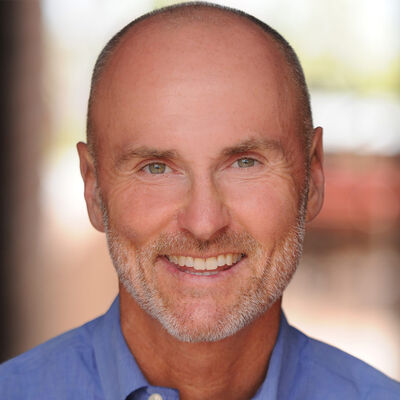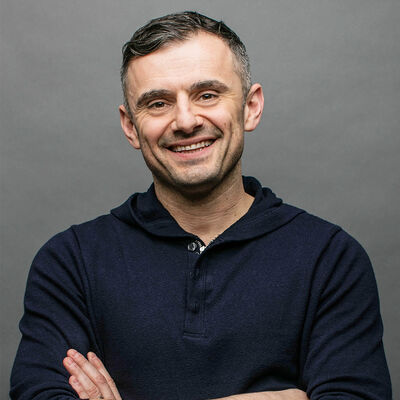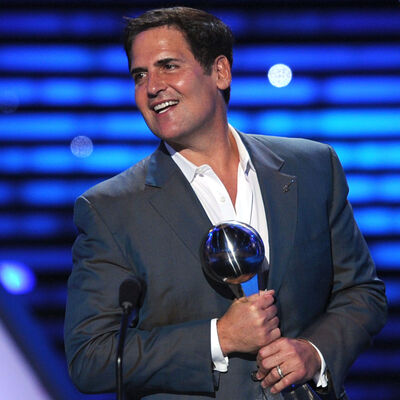Fmr. Head of Global Hospitality & Strategy, Airbnb; NY Times Bestselling Author; Founder of Modern Elder Academy

Chip Conley: Biography at a Glance
- Chip Conley is an entrepreneur who formerly served as Strategic Advisor for Hospitality and Leadership at Airbnb.
- Chip is a thought leader at the intersection of psychology and business who disrupts how we think about teaching and learning.
- He taught his award-winning methods to hundreds of thousands of Airbnb hosts in nearly 200 countries and also mentored current CEO Brian Chesky.
- Chip's latest book, Learning to Love Midlife: 12 Reasons Why Life Gets Better with Age, inspires readers to embrace midlife as a time of transformation and joy.
- His book, Wisdom at Work: The Making of a Modern Elder, ignites a powerful conversation about the value of intergenerational connectivity, the wisdom that comes with age, and how to inspire a growth mindset for people of all ages.
- He founded Modern Elder Academy, the first midlife wisdom school dedicated to transforming aging.
- Chip also authored Peak and the New York Times bestseller Emotional Equations, which share his own theories on transformation and meaning in business and life.
Media
Videos
Biography
Chip Conley is on a midlife mission. After disrupting the hospitality industry twice, first as the founder of Joie de Vivre Hospitality, the second-largest operator of boutique hotels in the U.S., and then as Airbnb’s Head of Global Hospitality and Strategy, leading a worldwide revolution in travel, Conley co-founded MEA (Modern Elder Academy) in Baja California, Mexico. Inspired by his experience of intergenerational mentoring as a ‘modern elder’ at Airbnb, where his guidance was instrumental to the company’s extraordinary transformation from a fast-growing start-up to the world’s most valuable hospitality brand, MEA is the world's first ‘midlife wisdom school’ and has a campus opening on a 2,600-acre regenerative horse ranch in Santa Fe, New Mexico in April 2024. Dedicated to reframing the concept of aging, MEA supports students to navigate midlife with a renewed sense of purpose and possibility. A New York Times bestselling author, Conley's seventh book, Learning to Love Midlife: 12 Reasons Why Life Gets Better with Age, is about rebranding midlife to help people understand the upside of this often-misunderstood life stage and gave a TED talk on the "midlife chrysalis." In the week of Chip's launch of Learning to Love Midlife, he was featured as a guest on both Good Morning America and The Today Show and the book rose to the #1 Happiness/Self-Help book on Amazon.
Topics
When the young founders of Airbnb asked Chip to help turn their startup into a world-class organization, he brought a core set of principles that would transform the culture of the company.
As the world adapts to the changing dynamics of hybrid work, these same principles are the key to unlocking productivity, creativity, collaboration, and culture - all while maintaining flexibility. This framework will give you the tools to amplify a growth mindset at scale, and develop talent across all levels of your organization.
Chip deconstructs how to understand the motivations of employees, customers, bosses, and investors, and use that to foster better relationships and build a more connected culture than ever before.
Chip Conley has disrupted the hospitality industry twice, once as the founder and long-time CEO of Joie de Vivre Hotels (America's second largest boutique hotel company) and again when he joined the three founders of Airbnb to help grow and lead the company to become the most valuable hospitality company in the world. Chip has identified his three rules of disruptive innovation in any industry and how start-ups as well as established companies can see the foreshadowing of a new wave on the horizon and surf that wave to competitive advantage.
In this conversation, Chip shares Joie de Vivre's remarkable transformation while providing real world examples from other companies and showing how attendees can bring about similar changes in their work and personal lives. He explains how to understand the motivations of employees, customers, bosses, and investors, and use that understanding to foster better relationships and build an enduring and profitable corporate culture.
For the first time ever, we have five generations in the workplace at the same time. What would happen if we got more intentional about how we all work together? Age diversity makes companies stronger as wisdom can flow in both directions from old to young and vice versa based upon new practices that encourage mutual mentorship.
In this conversation, Chip will disrupt how you think about teaching and learning, and share how to activate mutually-beneficial relationships between the generations of your workforce to inspire a growth mindset in your culture (not just for young hires).
Chip believes the most neglected fact in business is that we're all human and that business schools don't do enough to help us understand that creating peak experiences for stakeholders can create peak performance for a company. The PEAK model can be used to understand how a company can relate to relationships beyond those with employees and customers: investors, vendors, the community, and, even with yourself. As a practitioner who has used his own company (with over 3,000 employees) as a laboratory for understanding the human condition, Chip's philosophical but prescriptive approach to fulfillment and work-life balance will be very illuminating.





